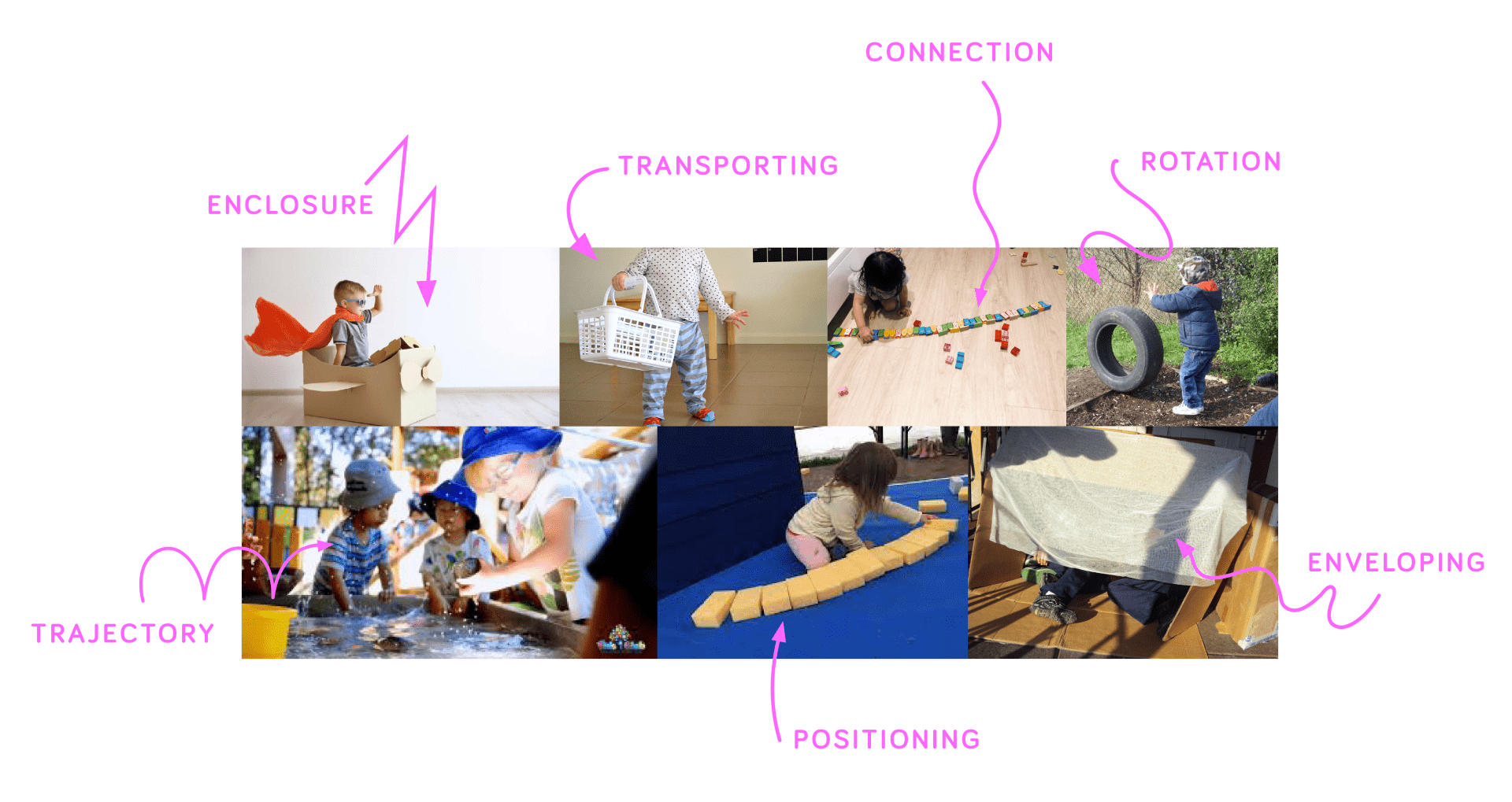


2022-02-03
I had the pleasure of interviewing Laura Jogela-Williams who is a Teacher and SEN expert. Her insight into the role of play with SEN children is fascinating and one that I hope you will find of interest and of use in your lives.
Play has a vital role as it allows a child to regulate sensory and emotional needs effectively in a fun way. As play for any child allows a sense of freedom and pure joy, the additional ability to balance out irregularities within themselves is essential.
Children who have sensory processing issues find that sensory play can meet those needs and allow a child to feel comfortable and relaxed within their own world. Children with physical disabilities may also find solace in play, a freedom from the physical disabilities that they are living with. Whilst a lot of children with social and emotional difficulties may also find that becoming engrossed in play allows a freedom from the emotional and mental weight that they feel from everyday activities, such as attending school or having to go somewhere new.
The need for sensory play is one of the most prominent play needs of SEN kids that I work with. We all enjoy sensory play, the satisfying feeling of playing with slime or bouncing on a trampoline, but for many SEN children this is a need rather than just for enjoyment.
SEN children can struggle beyond the standard 5 senses that we usually talk about. The proprioceptive sense is our ability to know where we are positioned in relation to other objects, such as sitting on a chair or standing near to someone else. The vestibular sense is one of balance and co-ordination and our interoceptive senses are those relating to “internal” sense, such as hunger, needing the toilet and feeling poorly. Play to meet the needs of all their senses is a crucial part of support in the home and school.
Tech play is an interesting topic within SEN play, as a lot of parents state that their children will very quickly become obsessed and their behaviour changes in a negative way. Unlike neurotypical children who may grasp some concept of screen time limits and a healthy level of tech time some SEN children can quickly become engrossed in games and find it distressing when they have to take breaks. The feeling of being engrossed in a game (or feeling that they cannot leave or pause the game) can also affect a child’s ability to concentrate on their interoceptive sense that indicates they need the toilet, are hungry or are tired; which means the game takes priority again. Now that’s not to say that I don’t think they should play these games, but support from timers and visual timetables can help to manage a child’s desire to play console and tablet games.
I supported a family whose son who was diagnosed ASD and struggled with behaviour and sleep – he was unable to fall asleep at night and this having a knock-on effect in the morning leaving him tired and unable to manage in school. We came up with ideas for introducing sensory activities through play and removed all tech related items within an hour of an appropriate bedtime and replaced with fine motor skill activities, as these support the production of melatonin in the body and encourage sleep.
We teamed this with age appropriate sleep-training, including a body-clock shift back (gradually moving bedtime earlier) and the change was incredible! The family were so much happier as everyone was getting more sleep, their son was much less aggressive as his sensory needs were also being met due to the new bedtime routine. He also started managing better with the expectations of his school as he wasn’t tired, which was causing some of the behaviour issues.
Visiting that family altogether and seeing how their relationships had become stronger and as individuals they were happier was just magical to see.
There are so many! Role play is vital as it allows for social rehearsal, which is extremely useful for SEN children who struggle with new people, situations or places. This can be done through acting things out together in play, allowing them to explore role play areas independently or playing through dolls and playsets.
Playing games with others is great for increasing memory and patience – skills children with conditions such as ASD or ADHD find difficult to learn independently. Quick turn-taking games or 2 player games such as four-in-a-row, snap or Jenga are fantastic to start with as children have to wait their turn but it isn’t too long before they have the opportunity to play again. This can then be gradually increased to longer games or multiple players. For memory games that require them to remember what has happened previously (such as pairs or Kim’s game) are good to play regularly to strengthen memory capabilities.
Activities that help to regulate emotions are fantastic – especially now. Children returning to education and having to cope with all the new rules can be a real challenge for SEN children. So, creating space for free flow play and play that helps to calm are brilliant. I often suggest that parents create a calm space at home, with calming activities and toys, that their child can choose from and play however they wish after school.
When I watched your video on schemas it instantly made me think of behaviour I see with children I work with.
Transport – Moving items from one place to another can meet a variety of sensory needs, including the proprioceptive sense, which is the sense of where we are in relation to other items and our sense of knowing where our own body is within a physical space. Carrying heavy objects can also have a regulating effect for children who are under-sensitive with their sense of touch and feel, as they can enjoy the feel of heavy touch or the feel of light tension on their body. The transport schema can be problematic for children with either or both fine and gross motor skills, as they may not be able to move or position items the way they would like to due to their physical abilities.
Positioning – as you said yourself in the video “so satisfying!” for children with ASD positioning objects in a pattern or way that makes sense to them offers them a sense of predictability and control. Which helps to reduce stress and anxiety and regulate their emotions. Many parents of autistic children find that they have a way of organising their room or belongings that may appear extremely messy or disorganised, but to their child it is exactly how they need things to be laid out. They may feel that toys or items need to be grouped a certain way for it to “feel right” to them.
Rotation – Classic fidget spinner territory, relating to ADHD. They feel the need to spin or have constant items to move or play with to focus. Rotation and spinning can be an extension of stimming for some children. Stimming is a repetitive action that creates self-stimulation as a coping mechanism. SEN children may also enjoy heavily focussing on spinning or rotating objects to block out external stimuli that they find stressful.
Orientation – This is an interesting schema as a child needs to understand the occupation of space that they themselves or an item has. A mum once told me that her highly intelligent daughter had looked for her dad in a cutlery drawer during a game of hide and seek, as she had no understanding of the physical space her dad occupied. Orientation games can also be difficult for some SEN children as they are unable to identify the object’s size and location in relation to other objects.
Some children may struggle to apply schemas across different contexts. To use the ball analogy you used, Emma, in your schemas video, a child may learn that a football will bounce back – they may not be able to apply that idea to a different type of ball and may have to learn this all over again. They may not be able to understand that the ball will continue to bounce back if they play with it somewhere else, or that the ball may react differently on a different surface.

There are so many “taboos” within modern parenting and the judgement and comparison between parents can be huge, but for SEN parents this again magnifies the differences between their children and neurotypical children. A mum I worked with had a daughter of 14 who had SPD and she couldn’t always work out when she needed the toilet, this was also made worse when she was stressed. The daughter would therefore occasionally have accidents. Her mum said to me once “When everyone’s kids are potty training you can all have a laugh about it or share ideas and you feel much better, but I don’t know anyone who is still going through it.” – Which is why you will regularly find me openly talking about toilet training and other parenting issues on my Instagram, as I feel it is vital to stop the shame and just chat openly and honestly about it! There isn’t anything now about toileting that will make me blush and I feel that creating a safe space to talk about it, without judgement or embarrassment is key.
Include their children! It is a rite of passage for children to attend a birthday party. But many SEN children I have worked with had not received a party invite (or even an invite to play after school) the whole time they were at primary school. If you are worried about a child with SEN needing more support at a party or outing ask their parents, they know their capabilities and could probably suggest a way that they could join in that would suit everyone. Lack of friendships is a frustratingly common issue, as it isn’t something the SEN parent themselves can do anything about, they have to rely on others for this.
Validate a SEN parents struggle. I feel it is important not to try to liken your experience of parenting to that of a SEN child’s parent. All too often we feel the need to say “oh, my little one does that, don’t worry!” we are trying to make the SEN parent feel more at ease, but more often than not the they leave the discussion feeling that their situation has not been taken seriously, as they will most likely have watered down their experiences to make it more palatable for a non-SEN parent in the first place. So, it’s OK to admit that you don’t understand how hard it is to manage parenting and the additional advocacy struggles SEN parents face.
But what I love about working with parents whose children have different abilities is that they really learn to never take any milestone or achievement for granted. All too often within education a child will reach a particular point in their learning and we are in such a hurry to help them “succeed” that the praise and celebration is lost.
Lead by example, it is the same as any social behaviour you want your children to have. As I previously mentioned, if there are children in their class with additional needs that are not getting an invite – be the one to provide an invite to a party.
Also, check your bookshelves and the television programmes your children are exposed to. Are there any SEN children? There are great accounts on Instagram that share fantastic books that include diversity in all its forms. Characters with ASD such as Julia in Sesame street or Pablo on CBeebies also. This can also be done by the action figures or toys they have – seen within the new diverse Barbie range for example.
Parents I have worked with have often said that they find it worse when children are told “not to stare” instead of politely asking questions. Parents are usually, in my experience, much more willing to answer questions and raise awareness of their child’s needs.
There can be a lot of trial and error with creating ideal play set-ups for SEN children. So, my favourite thing to suggest is borrowing or buying second-hand. This saves money and if it doesn’t have the desired effect then you haven’t wasted too much money and it can easily be sold on again.
For problems with sleep toys that require fine motor skill are fantastic as they support the brain in melatonin production. I don’t recommend play that is aimed at “tiring a child out” for sleep support, as they usually hypes them up!
Many children with additional needs struggle with stress and anxiety. Worry monsters (cuddly monster with a zip mouth for worries to be written down and placed in their mouth) for younger children with anxiety are fantastic as they can be used in a range of ways, either they can “eat” the worry or they can be used as a vehicle to discuss their anxiety.
You may have guessed by now that I’m a huge fan of sensory play and you don’t need SEN specific toys to do it. It will very often look like normal play…playing on a trampoline, hanging upside down or playing with different textures! Sensory play is easy to create once you have discovered which senses your child enjoys seeking out.
Fine motor skill games are fantastic for use within the bedtime routine. These are games that use predominantly the hands, such as Lego, board games, colouring and jigsaws. Many children with additional needs also struggle with their sleep, so introducing games and play that support melatonin production and create a peaceful environment are brilliant before bed. I also advise fine motor skill games that are played in pairs for before bedtime as this also gives great 1:1 time for you and your child, which can also help to manage separation anxiety before bed.
You can find Laura at @thepathwaypartner on Instagram or at her website here.
